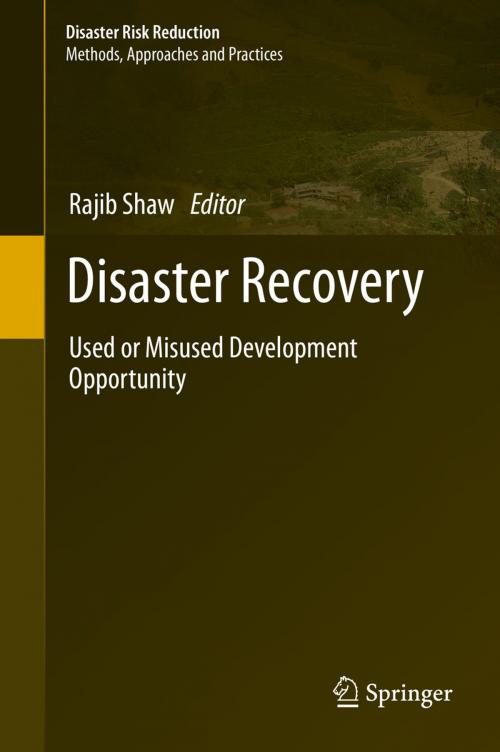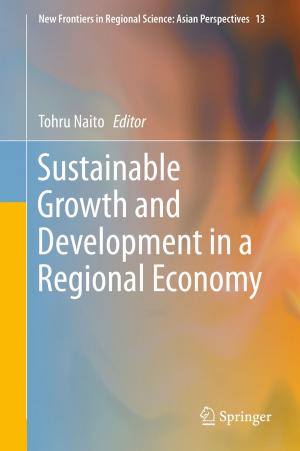Disaster Recovery
Used or Misused Development Opportunity
Nonfiction, Science & Nature, Nature, Environment, Natural Disasters, Science, Biological Sciences, Environmental Science| Author: | ISBN: | 9784431542551 | |
| Publisher: | Springer Japan | Publication: | October 30, 2013 |
| Imprint: | Springer | Language: | English |
| Author: | |
| ISBN: | 9784431542551 |
| Publisher: | Springer Japan |
| Publication: | October 30, 2013 |
| Imprint: | Springer |
| Language: | English |
This book explains key lessons learned from diverse disaster situations and analyzes them within the framework of governance, education, and technology, providing a framework for disaster recovery as a development opportunity. In post-disaster situations, different types of resources are put into the affected region, varying according to technical, financial, intellectual, and community resources. If properly implemented, disaster recovery can change the context of risk-reduction approaches; if not, it can create additional hazards. In some countries, the post-disaster recovery process has even changed the socio-economic and political context of the affected region and country.
The book has 21 chapters and is divided into four parts: governance and institutional issues (five chapters), education and learning issues (four chapters), technology and innovation issues (five chapters), and cross-cutting issues (five chapters). The final chapter provides an analysis of the key topics.
The primary target groups for this book are students and researchers in the fields of environment, disaster risk reduction, and climate change studies. The book provides them with a good idea of the current research trends in the field and furnishes basic knowledge about these vital topics. Another target group comprises practitioners and policy makers, who will be able to apply the knowledge collected here to policy and decision making.
This book explains key lessons learned from diverse disaster situations and analyzes them within the framework of governance, education, and technology, providing a framework for disaster recovery as a development opportunity. In post-disaster situations, different types of resources are put into the affected region, varying according to technical, financial, intellectual, and community resources. If properly implemented, disaster recovery can change the context of risk-reduction approaches; if not, it can create additional hazards. In some countries, the post-disaster recovery process has even changed the socio-economic and political context of the affected region and country.
The book has 21 chapters and is divided into four parts: governance and institutional issues (five chapters), education and learning issues (four chapters), technology and innovation issues (five chapters), and cross-cutting issues (five chapters). The final chapter provides an analysis of the key topics.
The primary target groups for this book are students and researchers in the fields of environment, disaster risk reduction, and climate change studies. The book provides them with a good idea of the current research trends in the field and furnishes basic knowledge about these vital topics. Another target group comprises practitioners and policy makers, who will be able to apply the knowledge collected here to policy and decision making.















